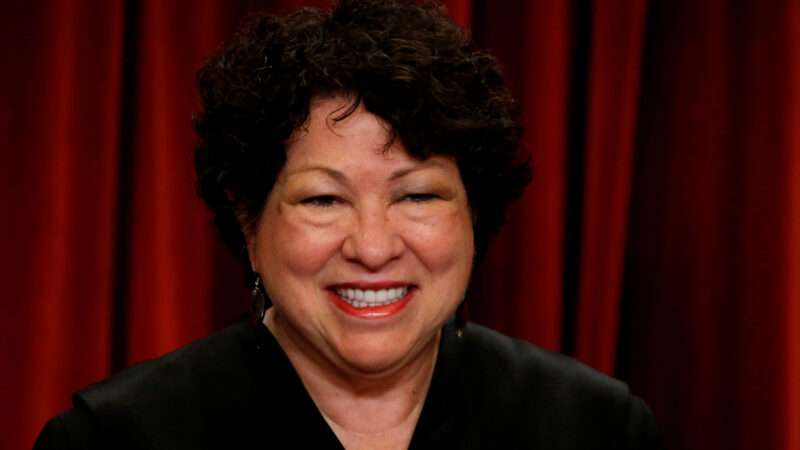
The U.S. Supreme Court heard oral arguments this week in a case that asks whether the Fourth Amendment’s usual warrant requirement should be waived when the police conduct a warrantless home search while carrying out a so-called “community caretaker” function, such as when the cops perform a “wellness check” on a potentially troubled or injured person. Justice Sonia Sotomayor, one of the Court’s biggest Fourth Amendment hawks, raised a few objections to giving the cops that much leeway to enter the home without a warrant.
The case is Caniglia v. Strom. In 2015, Rhode Island police paid a “well call” on 68-year-old Edward Caniglia after his wife reported to authorities that he might be suicidal. The couple had gotten into a fight the night before and she had left to sleep elsewhere. When she couldn’t reach him the next morning, she called the cops. The officers who visited the house had Caniglia taken to the hospital in an ambulance, where he was examined by a nurse and a social worker and discharged the same day. In the meantime, the police entered Caniglia’s home without a warrant and seized his handguns. The case centers on Caniglia’s claim that the warrantless search and seizure violated his Fourth Amendment rights.
The U.S. Court of Appeals for the 1st Circuit ruled in the favor of the officers in 2020, holding that the “community caretaking” exception to the Fourth Amendment was sufficient to cover the matter at issue. The community caretaking doctrine, the 1st Circuit maintained, “is designed to give police elbow room to take appropriate action.”
Sotomayor took issue with the lower court’s judgment. “I am deeply concerned about the 1st Circuit’s claim that there is no requirement that officers must select the least intrusive means of fulfilling community caretaking responsibilities,” she told Marc Desisto, the attorney representing the Rhode Island officers and their superiors. For example, “why couldn’t they ask the wife” for permission before entering the house? Why didn’t the officers speak to a social worker or a psychiatrist? “How do we limit [the police] from substituting their own” judgment in such matters? Sotomayor demanded. “In this situation, there was no immediate danger,” she said, yet the police “decided on their own to go in and seize the gun.”
Sotomayor returned to those concerns later during an exchange with Morgan Ratner, an assistant to the U.S. solicitor general. “I don’t have a problem with them having removed this gentleman and taken him to the hospital,” Sotomayor said. That’s a valid seizure under Fourth Amendment case law “because they had reason to believe that he was threatening suicide.” Taking someone like Caniglia for a “psychiatric examination is very much an exigent circumstance.”
The problem “is the next step” the officers took, Sotomayor maintained, “which is going into the home without attempt to secure consent from the wife and seizing the gun and then keeping it indefinitely until a lawsuit is filed.”
“The wife tried to get [the gun] back,” Sotomayor noted. “He tried to get it back. Weeks and weeks went by. When we permit police to search and seize without some standard, we run the risk of situations like this one repeating themselves.”
from Latest – Reason.com https://ift.tt/3rhIBmZ
via IFTTT